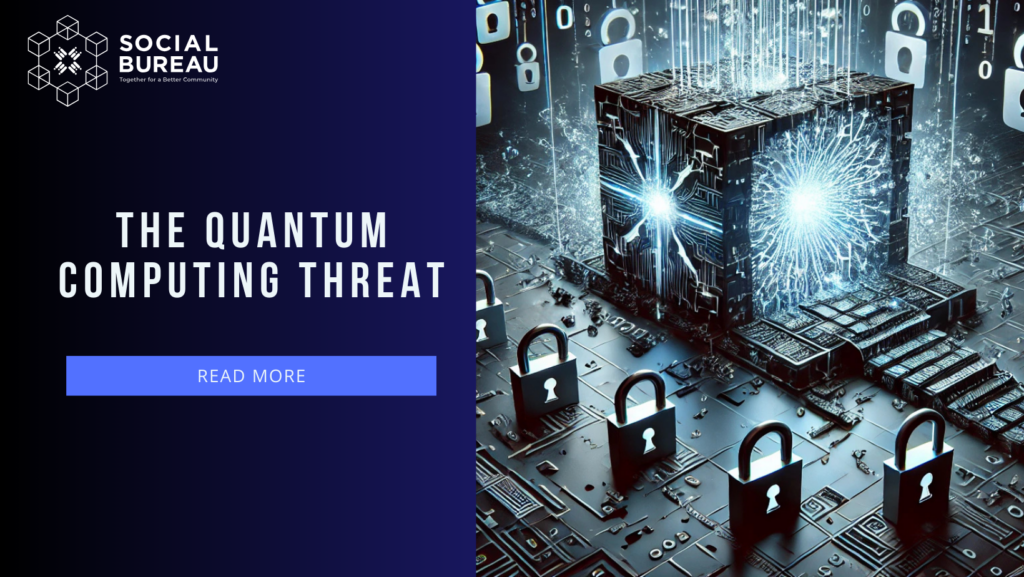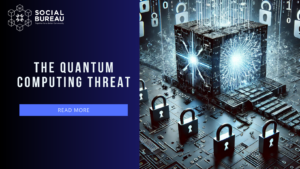Quantum computing, once a concept confined to the pages of theoretical physics, is rapidly becoming a reality. With companies like Google and IBM racing toward quantum supremacy, the implications for the digital world are profound. While quantum computing promises breakthroughs in areas such as medicine, logistics, and material science, it also poses a severe threat to one critical domain: cybersecurity.
What Makes Quantum Computing Different?
Traditional computers, including the ones we use today, operate based on binary logic, where data is processed in bits that represent either a 0 or a 1. Quantum computers, on the other hand, use quantum bits, or qubits, which can represent both 0 and 1 simultaneously thanks to the phenomenon of superposition. This property allows quantum computers to process information at an exponentially faster rate than classical computers, solving problems that would take current computers millennia in mere seconds.
Quantum Computing vs. Encryption
One of the most pressing concerns about quantum computing is its potential to break widely-used cryptographic systems. Currently, encryption methods such as RSA (Rivest–Shamir–Adleman) and ECC (Elliptic Curve Cryptography) are the backbone of secure communications online. These encryption methods rely on the difficulty of factoring large prime numbers or solving complex mathematical problems, tasks that classical computers struggle with.
However, a sufficiently powerful quantum computer, using algorithms like Shor’s algorithm, could quickly factor these large numbers, rendering traditional encryption useless. This means that much of the world’s encrypted data, including sensitive communications, financial transactions, and government secrets, could become vulnerable to decryption in a post-quantum world.
The Rise of Post-Quantum Cryptography
In response to this looming threat, the field of post-quantum cryptography is gaining momentum. Researchers are working on developing cryptographic algorithms that would be resistant to quantum attacks. The U.S. National Institute of Standards and Technology (NIST) has already launched initiatives to create quantum-resistant encryption standards, aiming to ensure that future data remains secure even in the age of quantum computing.
These post-quantum algorithms focus on mathematical problems that are difficult for both classical and quantum computers to solve, providing a new layer of protection for digital communications. However, transitioning the global infrastructure to quantum-resistant algorithms will be a monumental task, requiring years of research, testing, and widespread adoption across industries.
The Quantum Threat to Blockchain
Another area under threat from quantum computing is blockchain technology. Blockchains, which underpin cryptocurrencies like Bitcoin and many decentralized finance (DeFi) platforms, rely on cryptographic hashing and public-key cryptography to ensure the integrity and security of transactions. Quantum computers could potentially break these cryptographic mechanisms, leading to a collapse in the security of blockchain networks.
If attackers were able to crack the cryptography behind a blockchain, they could forge transactions, manipulate records, or even reverse transactions, threatening the entire decentralized ecosystem. This has raised concerns among the blockchain community about how to future-proof these systems in the face of quantum computing.
Preparing for the Quantum Era
The quantum threat is not just theoretical—organizations must begin preparing now to mitigate future risks. Companies and governments are investing heavily in quantum research to understand both its capabilities and its dangers. As quantum computers become more capable, security professionals are focusing on quantum key distribution (QKD), a technology that uses the principles of quantum mechanics to create theoretically unbreakable encryption. By leveraging the quantum properties of particles to detect eavesdropping, QKD offers a potential solution for securing communications in a post-quantum world.
Conclusion
Quantum computing is poised to revolutionize industries and unlock new possibilities in science, but it also introduces unprecedented cybersecurity challenges. As we approach the quantum era, it’s crucial for governments, businesses, and researchers to work together to develop quantum-resistant encryption methods and secure systems against the impending threats. While quantum computing holds tremendous promise, addressing its risks to cybersecurity is critical to ensuring a secure digital future.




